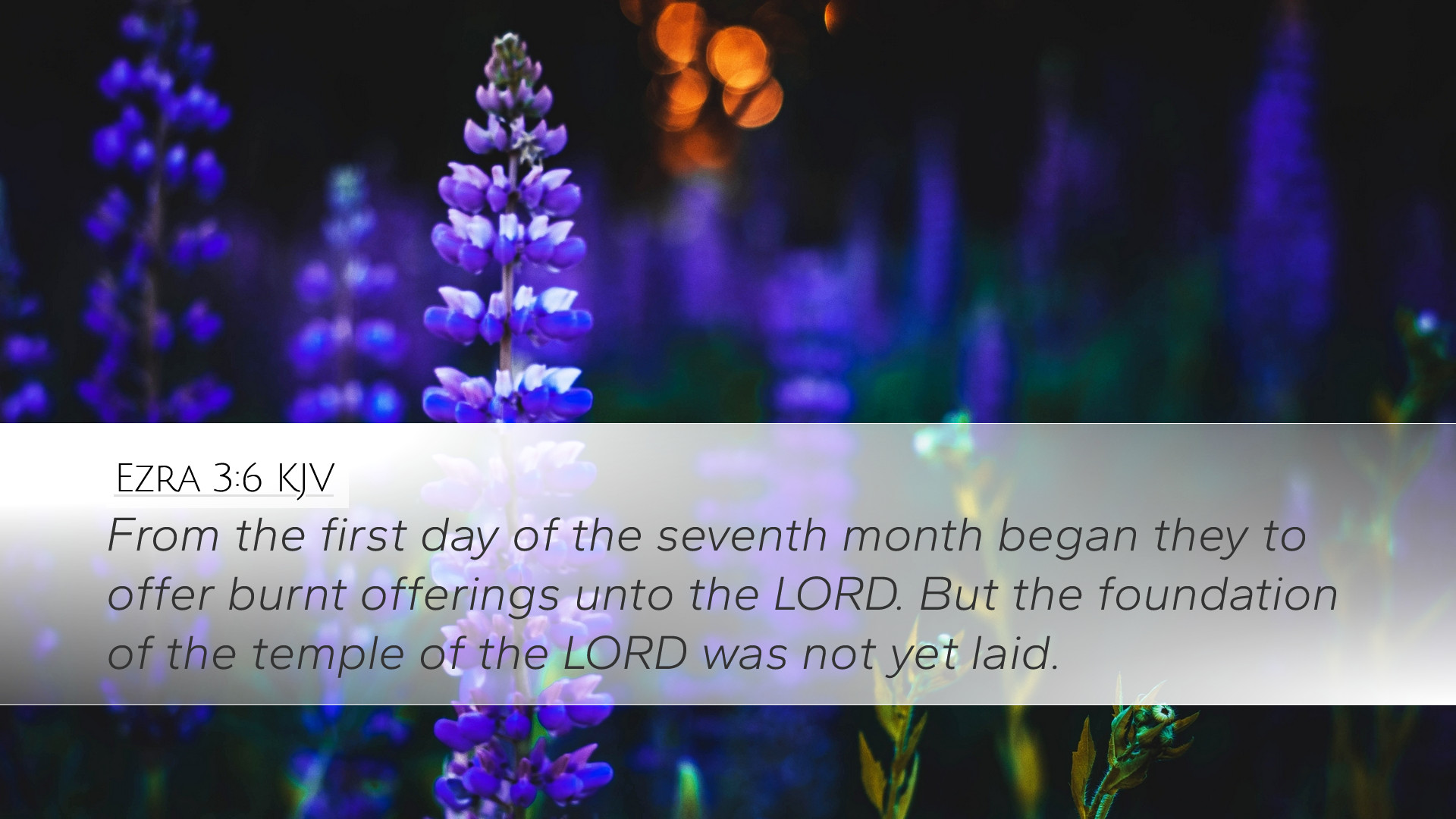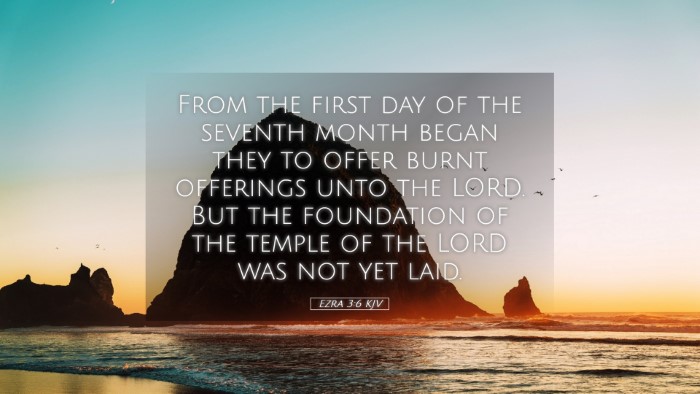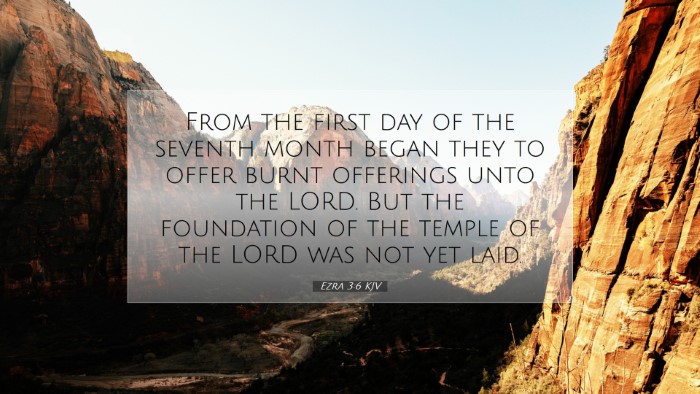Old Testament
Genesis Exodus Leviticus Numbers Deuteronomy Joshua Judges Ruth 1 Samuel 2 Samuel 1 Kings 2 Kings 1 Chronicles 2 Chronicles Ezra Nehemiah Esther Job Psalms Proverbs Ecclesiastes Song of Solomon Isaiah Jeremiah Lamentations Ezekiel Daniel Hosea Joel Amos Obadiah Jonah Micah Nahum Habakkuk Zephaniah Haggai Zechariah MalachiEzra 3:6
Ezra 3:6 KJV
From the first day of the seventh month began they to offer burnt offerings unto the LORD. But the foundation of the temple of the LORD was not yet laid.
Ezra 3:6 Bible Commentary
Commentary on Ezra 3:6
Verse: "From the first day of the seventh month began they to offer burnt offerings unto the Lord. But the foundation of the temple of the Lord was not yet laid."
Introduction
The verse under consideration, Ezra 3:6, marks a significant moment in the history of the Israelites as they return from Babylonian captivity. This verse encapsulates both the fervent worship of the returning exiles and the reality of their circumstances. Drawing from the insights of prominent public domain commentaries, we will explore the theological significance, historical context, and the practical implications of this verse for the church today.
Historical Context
After a period of Babylonian exile, a remnant of the Israelites was allowed to return to their homeland under the leadership of Zerubbabel and Jeshua. Matthew Henry elucidates on this context, highlighting that the events of Ezra occur around 537 BC shortly after Cyrus’s decree permitting the return. The exiles' journey signifies hope and renewal, yet they face the daunting task of rebuilding their devastated city and temple.
The Seventh Month
Ezra 3:6 notes the commencement of sacrifices on the first day of the seventh month, which corresponds to the Jewish festival of Trumpets (Rosh Hashanah). Albert Barnes emphasizes that this timing reflects a deliberate act of worship intended to invoke God’s favor upon their reconstruction efforts. The act of offering burnt offerings represents both gratitude and supplication, acknowledging God’s sovereignty and presence in their lives.
Theological Significance
This verse reveals profound theological themes. Worship as Priority: The act of offering burnt offerings underscores the centrality of worship in Israelite identity. Adam Clarke states that before embarking on the physical reconstruction of the temple, the people prioritized their spiritual relationship with God. This highlights the biblical principle that worship should always precede work.
Restoration and Renewal
The fact that the foundation of the temple was not yet laid signifies the incomplete state of their national and spiritual restoration. Henry comments on the meaning of this delay, suggesting that the worship served as a hopeful anticipation of future restoration. The act of worship amid uncertainty teaches that faith often requires waiting on God’s timing while actively engaging in spiritual disciplines.
Practical Implications
For contemporary pastors and theologians, Ezra 3:6 invites reflection on the relationship between worship and service. In a similar vein, the Church today must prioritize worship as foundational to its mission. The following points can be drawn:
- Worship as Foundation: Just as the returning exiles laid their worship as a foundation for the temple, modern churches must ensure that their programming, mission, and actions flow from a heart of worship.
- Embracing Incomplete Works: The incomplete state of the temple reflects the ongoing work of sanctification in the believer’s life; acknowledging that spiritual growth is a process can encourage patience and perseverance.
- Community vs. Individual Worship: The gathered worship of the Israelites highlights the importance of communal worship, encouraging the Church to foster community in its worship settings.
Conclusion
In conclusion, Ezra 3:6 serves as a poignant reminder that worship is both an individual and communal expression of faith that recognizes God’s grace in past deliverance and anticipates future restoration. By drawing from the insights of Matthew Henry, Albert Barnes, and Adam Clarke, we gain a deeper understanding of the significance of this moment in Israel's history and its implications for today’s church. As we reflect on this passage, may we be inspired to prioritize our worship, embrace the ongoing work of God in our lives, and commit ourselves to a collective journey towards restoration and renewal.


